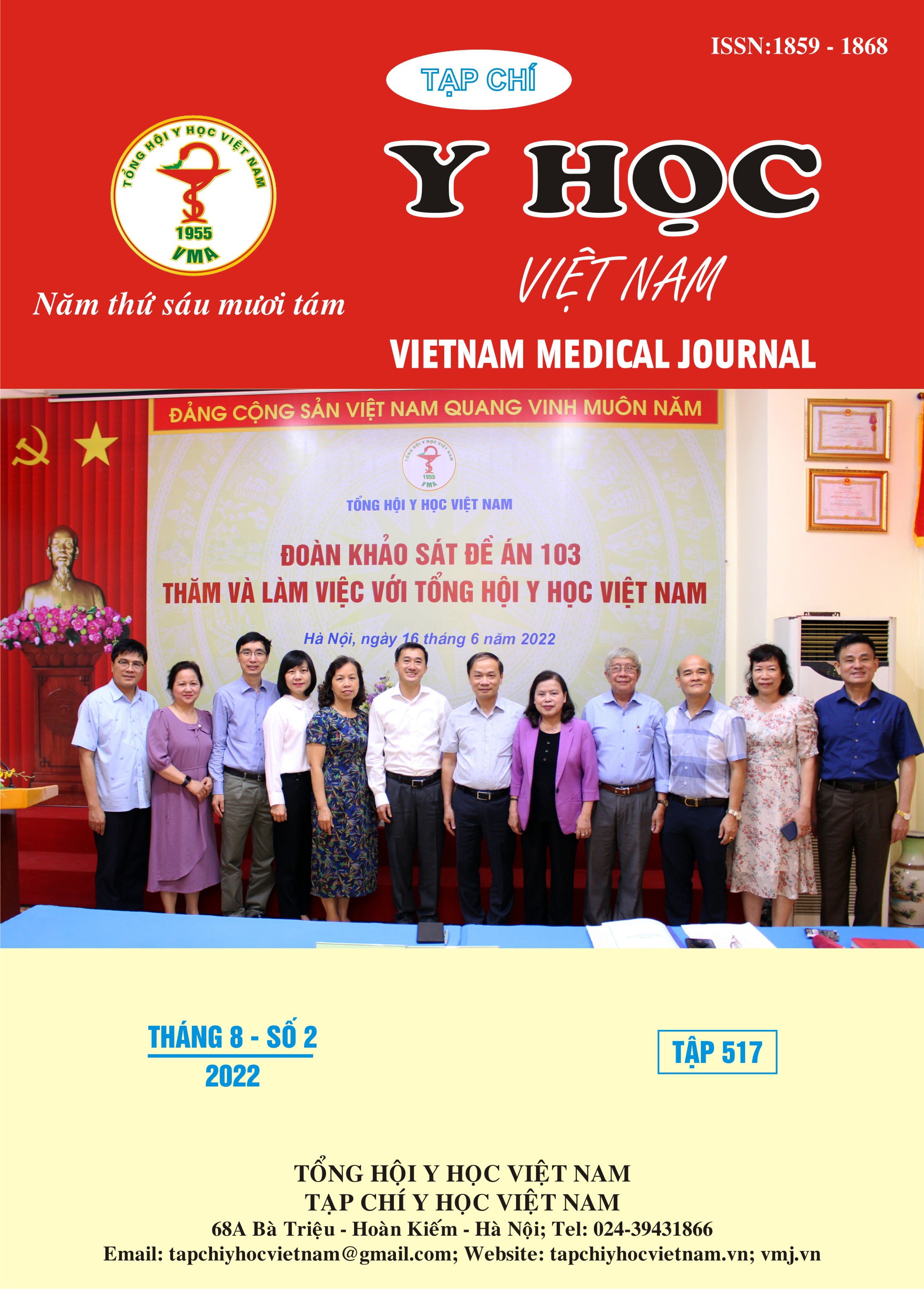ASSESSMENT SELF-EFFICACY OF FULL-TIME BACHELOR NURSING STUDENTS IN THE PRACTICE OF INTRAVENOUS INJECTION SKILLS FOR CHILDREN
Main Article Content
Abstract
Objective: To describe the self-efficacy level of bachelor nursing students in the practice of intravenous injection skills for children in 2018. Research objects and methods: Cross-sectional descriptive study, 214 full-time bachelor nursing students of couse 11filled the questionaire. Results: The percentage of students who strongly agree with the self-efficacy level in preparing tools and equipment accounted for 22.4%, the percentage of students who strongly agree with the self-efficacy level in communicating with patients and family members was 19.2%, the percentage of students who strongly agree with the self-efficacy level in guiding and taking care of children after injection was 12.6%. Conclusions: the self-efficacy level of bachelor nursing students in the practice of intravenous injection skills for children was low.
Article Details
Keywords
self-efficacy, nursing students, intravenous injection
References
2. Bandura A (1994), Self-efficacy. Encyclopedia of psychology, 3, 368 – 369.
3. Benner, P. (1984), From novice to expert: Excellence and power in clinical nursing practice. Menlo Park, CA. Addison-Wesley.
4. Bezanson, J., & Brannan, J. (2009), Simulator effects on cognitive skills and confidence levels. Journal of Nursing Education, 47(11), 495-501.
5. Esmat Noohi, Maryam Karimi-Noghondar, and Aliakbar Haghdoost. Survey of critical thinking and clinical decision making in nursing student of Kerman University. Iran J Nurs Midwifery Res. 2012 Sep-Oct; 17(6): 440–444.
6. Jahanpour, F,, Sharif, F,, Salsali, M,, Kaveh, M, H, and Williams, L, M (2010). Clinical decision-making in senior nursing students in Iran. International Journal of Nursing Practice, 16: 595–602, doi: 10,1111/j,1440-172X,2010,01886.


